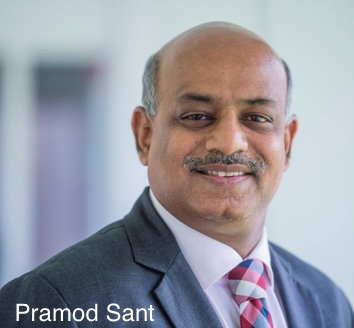
Dr. Pramod Sant, Industry Expert and Former Vice President and Head of Import, Export, and Customs, Siemens Ltd., South Asia, discusses how the FFFAI is reshaping the freight forwarding industry. “As an industry expert and a client of freight forwarders and customs brokers, I have been observing FFFAI since 2005.” There have been a lot of developments throughout this time, including the “Ease of Doing Business,” a rise in customer demands and behaviours, and most importantly, a transformation of the business landscape brought on by “digitisation” and “digitalisation.” AEO, Single Window, Face Less, Turant, e-Sanchit, SVB Process, and other new implementations have simplified and modernised customs. These developments call for an immediate response, a willingness to adapt, and a proactive strategy.
It is simple for some proactive members to achieve change on their own, but the FFFAI played a crucial role in ensuring that its 6000 members and 26 member associations are aware of the changes and prepared to adapt. This is done on a regular basis through lectures, sessions with experts across many domains, and interaction with governmental and business associations. One of these initiatives is collaboration with academics, as per Dr Pramod.
I have seen that every two years, FFFAI adopts a new theme that is in line with the situation and concerns of the present and very little of the issues from the past are discussed. This indicates that most of the problems have been resolved or streamlined.
Dr. Pramod Sant
Regarding the solutions provided for the issues faced by freight forwarders and CHAs by the participation of government organisations in such activities, he believes that “Today’s world is full of VUCA and disruption. It is important to update members about challenges as it is one of the main objectives. “Members can also communicate with one another and share best practices. India is a vast country, and its infrastructure, legal system, and processes are all different. A convention of this type aids in problem solving and the development of action plans. Government entities including customs, ports, civil aviation, and others regularly participate in these conferences since they provide them with the opportunity to interact with more than 600 members in person, understand their difficulties, and look for input and solutions.
As Dr. Pramod stated, “I have seen that every two years, FFFAI has adopted a new theme that is in line with the situation and concerns of the present and very little of the issues from the past are discussed. This indicates that most of the problems have been resolved or streamlined. Such conferences aid in developing a two-year vision, strategy, and roadmap. In the past few years, we have seen technology transform our lives in many areas: banking, travel, communication, entertainment, etc., “he said in response to a question on how technology is developing and being accepted on a daily basis and how it will support the freight forwarding sector.
During the past two COVID years, it has been seen how quickly technology and digitalisation have advanced and evolved into a need for business survival. Technology is also creating a lot of new opportunities for growth and business. Freight forwarding and customs clearance are not immune to these changes; in fact, given the rate of digitisation of Indian customs, it is critical that the industry stays current. Technology will help freight forwarders handle new business, satisfy customer demands, and become more efficient and cost-effective.